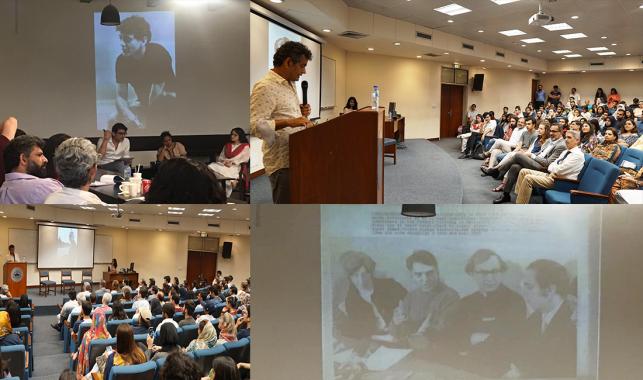
On Friday, May 3, 2019, the Dean’s Office at the Mushtaq Ahmad Gurmani School of Humanities and Social Sciences and the Gurmani Centre for Languages and Literature organised a conference on the life and legacy of the late Eqbal Ahmad (1933–1999). Considered by many as an audacious outsider for whom dissent was a moral responsibility more than it was an academic venture, Eqbal Ahmad left a deep impact on the academia and the causes he espoused for years to follow. His work against intervention, imperialism, and nationalism acted as inspiration for other contemporaries, including Edward Said and Noam Chomsky, to continue raising their voices against oppression. Eqbal’s staunch opposition to the Vietnam War, nuclear proliferation programmes of different countries, and the Israeli occupation of Palestine established him as an intellectual who realised the importance of grounding theory in reality.
In light of this, the conference was planned in order to introduce the younger generation to Eqbal Ahmad, to engage people who were acquainted with his work and life, and to establish the lasting relevance of his ethical positions and principles in the contemporary world.
The conference spanned a number of moderated panels: Memories of Eqbal, The Scholar-Practitioner Ethic, Anti-Colonial Struggles Then and Now, and a student-led roundtable, Necessity, Difficulties, and Experiences of Organising in Pakistan. The conference was capped by a keynote by the acclaimed writer and journalist, Mohammed Hanif, addressing a full house.
Open to all, the event witnessed enthusiastic participation by various members of Eqbal Ahmad’s family and colleagues, faculty members and students from different institutions, and equally interested outsiders who wished to hear and learn about him. The attendees from diverse backgrounds made the event an occasion for truly revisiting, celebrating, and honouring the life, legacy, and vision of an unparalleled global thinker and public intellectual, and one of the finest minds produced by Pakistan.








